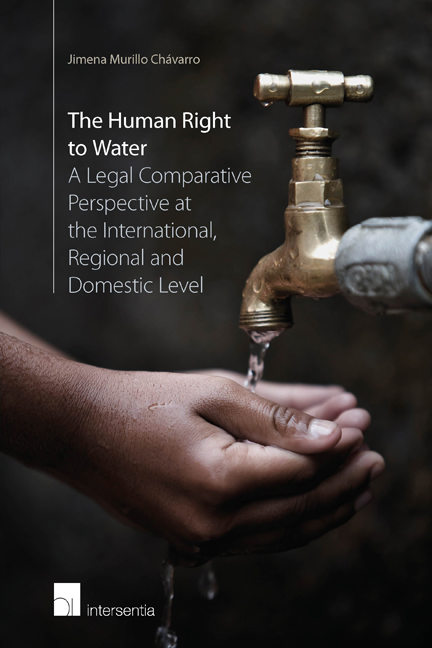 The Human Right to Water
The Human Right to Water Book contents
- Frontmatter
- Dedication
- Contents
- List of Abbreviation
- Table of Cases and Other Materials
- Table of Treaties and Other Instruments
- Chapter 1 General Introduction
- Chapter 2 Emergence, Definition and Core Content of the Human Right to Water
- Chapter 3 Recognition of the Human Right to Water at the International Level
- Chapter 4 Recognition of the Human Right to Water at the Regional Level
- Chapter 5 Recognition of the Human Right to Water at the Domestic Level: a Case Study Approach
- Chapter 6 Extraterritorial Application of the Human Right to Water in a Transboundary Watercourse Context
- Chapter 7 General Conclusions
- Bibliography
- Index
Chapter 7 - General Conclusions
Published online by Cambridge University Press: 15 December 2017
- Frontmatter
- Dedication
- Contents
- List of Abbreviation
- Table of Cases and Other Materials
- Table of Treaties and Other Instruments
- Chapter 1 General Introduction
- Chapter 2 Emergence, Definition and Core Content of the Human Right to Water
- Chapter 3 Recognition of the Human Right to Water at the International Level
- Chapter 4 Recognition of the Human Right to Water at the Regional Level
- Chapter 5 Recognition of the Human Right to Water at the Domestic Level: a Case Study Approach
- Chapter 6 Extraterritorial Application of the Human Right to Water in a Transboundary Watercourse Context
- Chapter 7 General Conclusions
- Bibliography
- Index
Summary
This study aimed to answer two main questions: firstly, whether and in what ways a human right to water is recognised, either as an independent right or as a derivative human right, and what is precisely the content of this right. Secondly, whether the human right to water can be applied in an extraterritorial context creating obligations between states, and whether international water law can be used to support a human right to water in a transboundary watercourse context.
RECOGNITION OF THE HUMAN RIGHT TO WATER UNDER HUMAN RIGHTS LAW
Despite the essential role that water plays for survival and human development, the recognition of the human right to water was slow and in some cases controversial. Although access to safe drinking water as a human right started to be discussed since the 70s, it was not until 2002 that the human right to water was for the first time defined and authoritatively recognised by the CESCR in General Comment 15. The recognition of this right has been controversial mainly due to its absence in international human rights conventions, and the possible obligations that this right might generate for states, particularly extraterritorial obligations related to the transfer of water to water-short countries.
The recognition of the human right to water has gone through an evolutive process. At the international level, this process can be summarised in the following phases. First, the acknowledgement of the human right to water was debated by scientists, politicians and experts in different fields at various international conferences, due to the growing awareness about water scarcity. Then, explicit reference to drinking water was incorporated in some international human rights conventions as a component of other human rights. States have recognised the essential function of drinking water for the implementation of a number of human rights, as evidenced by their reports under the monitoring mechanisms to the UN treaty bodies. Similarly, UN treaty bodies have expressed in their recommendations and concluding observations the essential role that water plays for the implementation of human rights.
- Type
- Chapter
- Information
- The Human Right to WaterA Legal Comparative Perspective at the International, Regional and Domestic Level, pp. 341 - 354Publisher: IntersentiaPrint publication year: 2015


